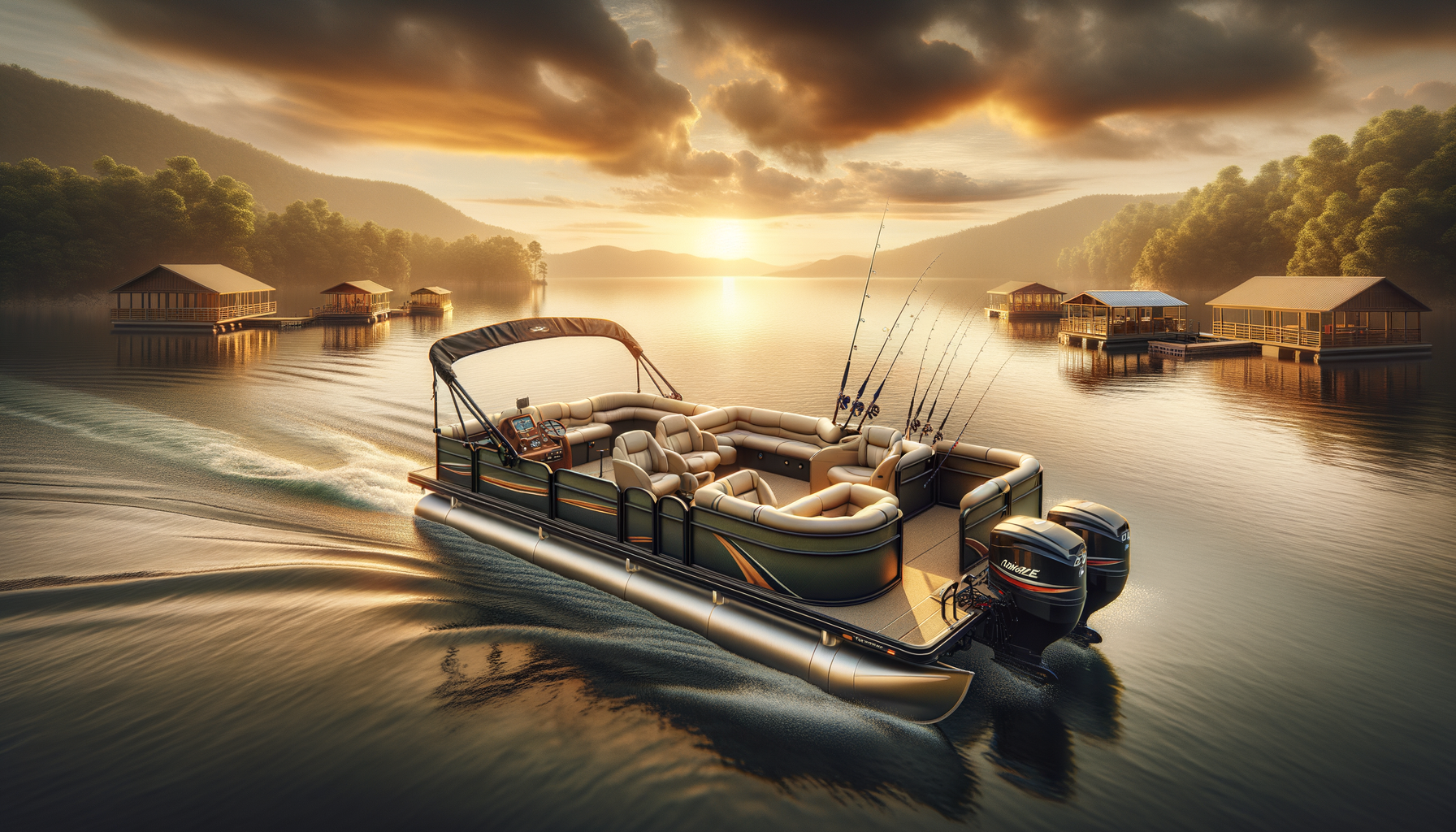
A Guide to Fishing Pontoon Boats
Understanding the Design of Fishing Pontoon Boats
Fishing pontoon boats are uniquely designed to offer stability and comfort, making them a favorite among anglers. Unlike traditional fishing boats, pontoons are built on two or three aluminum tubes, providing a flat and stable platform. This design not only enhances balance but also offers ample space for movement, crucial for casting lines and handling gear. The flat deck is often fitted with comfortable seating, live wells, and storage compartments, allowing anglers to enjoy long hours on the water without sacrificing comfort.
The size of fishing pontoon boats can vary significantly, accommodating both small groups and larger parties. Typically ranging from 16 to 30 feet in length, these boats can host multiple anglers without feeling crowded. The spacious deck is a significant advantage, especially when fishing in groups, as it prevents tangling lines and allows for easy navigation around the boat.
Moreover, the materials used in constructing pontoon boats contribute to their durability and longevity. Aluminum, being lightweight yet robust, ensures that the pontoons can withstand various water conditions without compromising performance. Additionally, many pontoons are equipped with features such as bimini tops for shade, rod holders for convenience, and advanced navigation systems for enhanced fishing experiences.
The Versatility of Fishing Pontoon Boats
Fishing pontoon boats are celebrated for their versatility. While their primary function is to provide an excellent fishing platform, these boats can also be used for a variety of other recreational activities. Families often choose pontoon boats for leisure cruises, swimming, and even water sports. Their spacious design allows for easy customization, enabling owners to tailor their boats to suit specific needs.
For anglers, the versatility of a pontoon boat means it can be used in different water bodies, from calm lakes to slightly choppier rivers. The stability offered by the pontoon design makes it suitable for various fishing techniques, whether you’re trolling, casting, or fly fishing. This adaptability is a significant draw for those who enjoy experimenting with different fishing styles.
Furthermore, fishing pontoons can be outfitted with a range of accessories to enhance their functionality. These include fish finders, trolling motors, and additional seating or storage options. The ability to modify and upgrade these boats ensures they can meet the evolving needs of their owners, making them a long-term investment for fishing enthusiasts.
Key Features to Consider When Choosing a Fishing Pontoon Boat
When selecting a fishing pontoon boat, several features should be considered to ensure it meets your specific needs. First and foremost, the size of the boat is crucial. Depending on the number of people you plan to have on board and the type of fishing you intend to do, you may need a larger or smaller vessel. Larger boats offer more space and stability, while smaller ones are easier to maneuver and transport.
Another critical feature is the layout of the deck. Look for boats with ample seating and storage options, as well as features like live wells and rod holders that cater specifically to fishing activities. The quality of the materials used in the boat’s construction is also important. High-quality aluminum pontoons and durable decking materials will ensure the boat’s longevity and performance.
Additionally, consider the propulsion system. Many fishing pontoons come with outboard motors, but the power and efficiency of these engines can vary. Opt for a motor that provides enough power for your needs without being excessively noisy or fuel-consuming. Lastly, features like bimini tops for shade, advanced navigation systems, and safety equipment should be factored into your decision, as they enhance the overall experience and safety on the water.
Comparing Fishing Pontoon Boats to Other Fishing Vessels
When it comes to fishing vessels, pontoon boats offer a unique set of advantages compared to other types. Traditional fishing boats, such as bass boats or deep-V hulls, are designed for specific fishing environments and techniques. Bass boats, for example, are built for speed and maneuverability, ideal for competitive fishing in lakes and rivers. However, they often lack the space and comfort that pontoons provide.
Deep-V hulls are excellent for navigating rougher waters, providing a smooth ride in choppy conditions. While they are suitable for ocean fishing, they may not offer the same level of comfort and versatility as pontoon boats. Pontoons, with their flat and spacious decks, allow for a more relaxed fishing experience, making them ideal for family outings and leisurely fishing trips.
Moreover, the stability of pontoon boats is unmatched. The dual or triple tube design ensures minimal rocking, even in slightly rough waters, which is a significant advantage for anglers who prefer standing while casting. This stability also makes pontoons a safer option for families with children or for those new to boating.
Conclusion: Why Fishing Pontoon Boats Are a Great Choice
Fishing pontoon boats offer a blend of comfort, stability, and versatility that makes them an excellent choice for both novice and experienced anglers. Their spacious design and customizable features allow for a wide range of activities, from serious fishing expeditions to leisurely family outings. The ability to accommodate various fishing styles and environments further enhances their appeal.
For those considering investing in a fishing vessel, pontoon boats provide a durable and adaptable option that can grow with your needs. Whether you’re looking to explore new fishing techniques or simply enjoy a day on the water with loved ones, a fishing pontoon boat is a valuable addition to any angler’s fleet.
In conclusion, the unique advantages of fishing pontoon boats make them a worthy consideration for anyone passionate about fishing and boating. Their ability to combine functionality with leisure ensures that every trip on the water is both enjoyable and rewarding.


